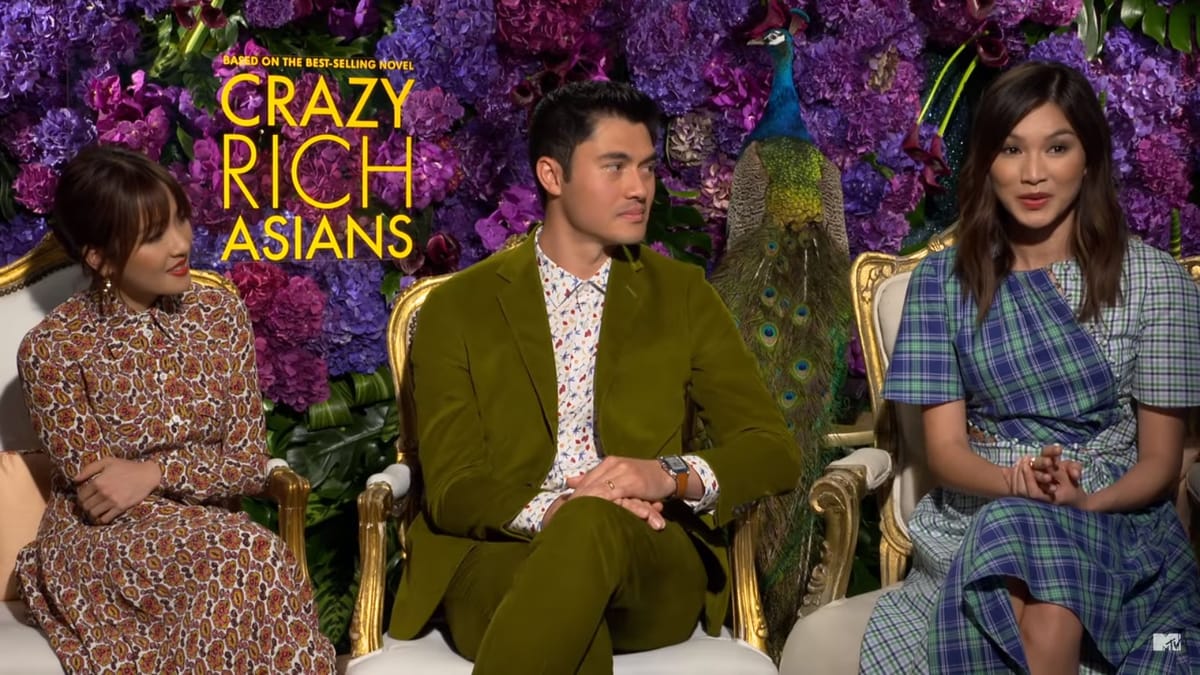Crazy Rich Asians: All Glitz and Glamour?

Glitzy, glamorous, and as glorious as the trailer claimed, this summer’s feel-good Crazy Rich Asians took the world by storm. The adaptation of Singaporean author Kevin Kwan’s book is an all-Asian romantic comedy à la Pride and Prejudice with a dash of Great Gatsby flair. The movie follows Rachel (Constance Wu), our unassuming Chinese-American protagonist, as she unknowingly walks into the tiger’s den when she travels to Singapore and meets her boyfriend, Nick’s (Henry Golding) formidable upper-crust family.
“It’s very easy to be swept up in the unapologetic extravagance of the movie. But at its core, Crazy Rich Asians is a story about loyalty: loyalty to oneself, one’s roots, to family, to love.”
Between the bougie mansions, private island getaways, and container ship bachelor party (rocket launchers provided, obviously), it’s very easy to be swept up in the unapologetic extravagance of the movie. But at its core, Crazy Rich Asians is a story about loyalty: loyalty to oneself, one’s roots, to family, to love. It’s a heart-warming introspective into the importance of family and into Asian identities. It never exoticizes, nor hand holds the viewer through aspects of Asian culture. The pivotal Mahjong scene comes to mind. Credit to director Jon M. Chu for this original scene, arguably the highlight of the film: sleek and poignant whether or not one is familiar with the game, though symbolic subtleties will undoubtedly please any informed film nerd.
25 years since an all-Asian cast lead a Hollywood movie, one cannot ignore the representation Crazy Rich Asians has brought to the silver screen. For Asian Americans, the movie’s success – even its mere existence, is a victory. Moreover, it’s a plot driven by the inner lives of Asian women. However, where it has strengths, it also has weaknesses. The movie, set in Southeast Asia, features an unrepresentative (in terms of Asian diversity), almost all-Chinese cast. Most controversially, the majority of non-Chinese Asians featured, appear as security guards, butlers or maids, sometimes even to “comedic” effect – niche or outdated jokes that have not aged well. Maybe it’s unfair to burden this light-hearted film with wholly representing such a diverse continent. Maybe a movie set in a country that prides itself on ethnic diversity should be expected to represent that. Maybe it’s a meta-commentary on said society’s class and racial divides.
Regardless, it’s fun, clever, and something new and welcome. Ultimately the first crack in the door that will hopefully bring even better things to come, Crazy Rich Asians is still definitely worth tracking down and showing your support. Who knows, maybe it’ll also inspire you to join the Mahjong society?
GILLIAN GOH, BA HISTORY OF ART




